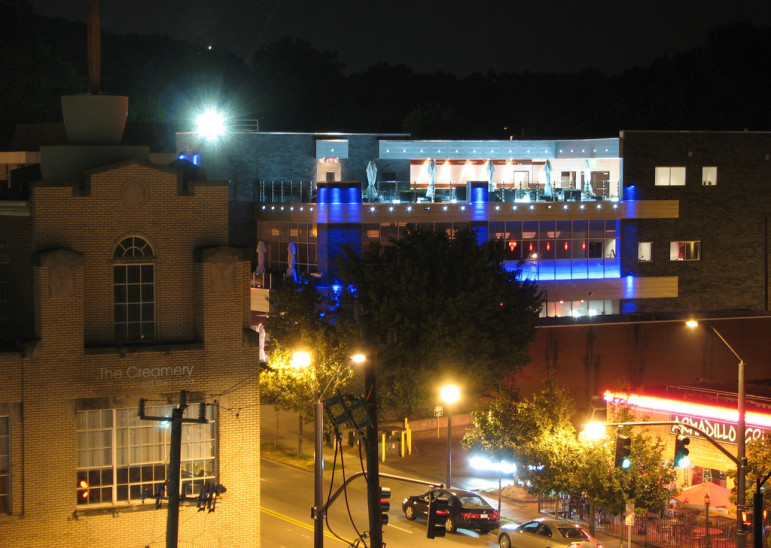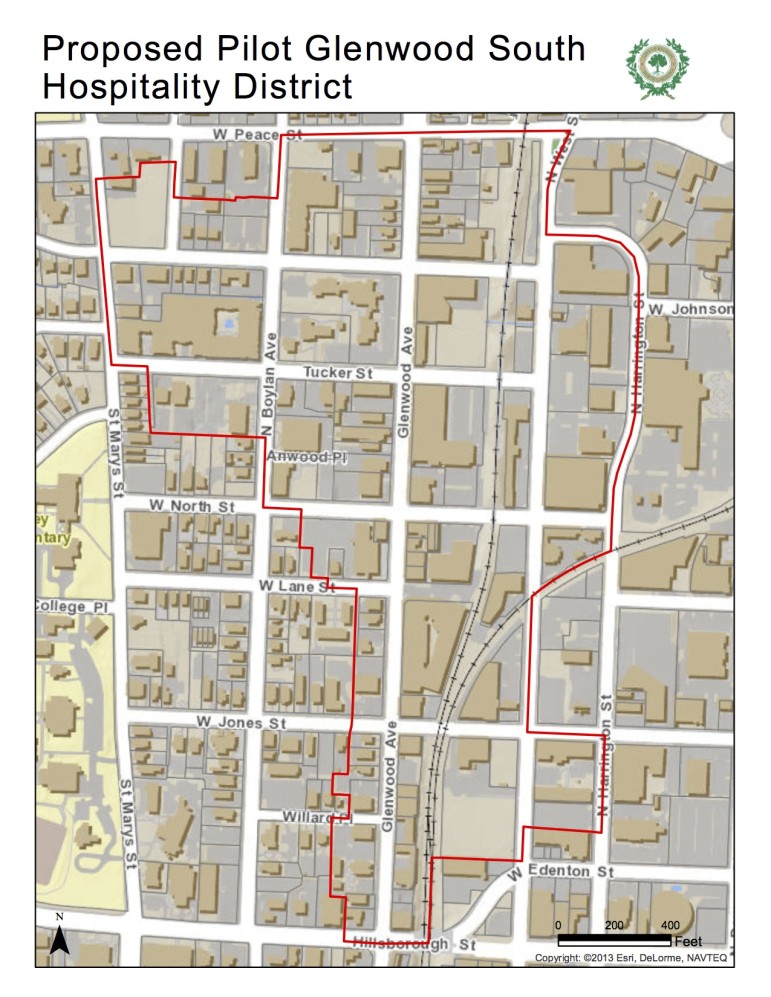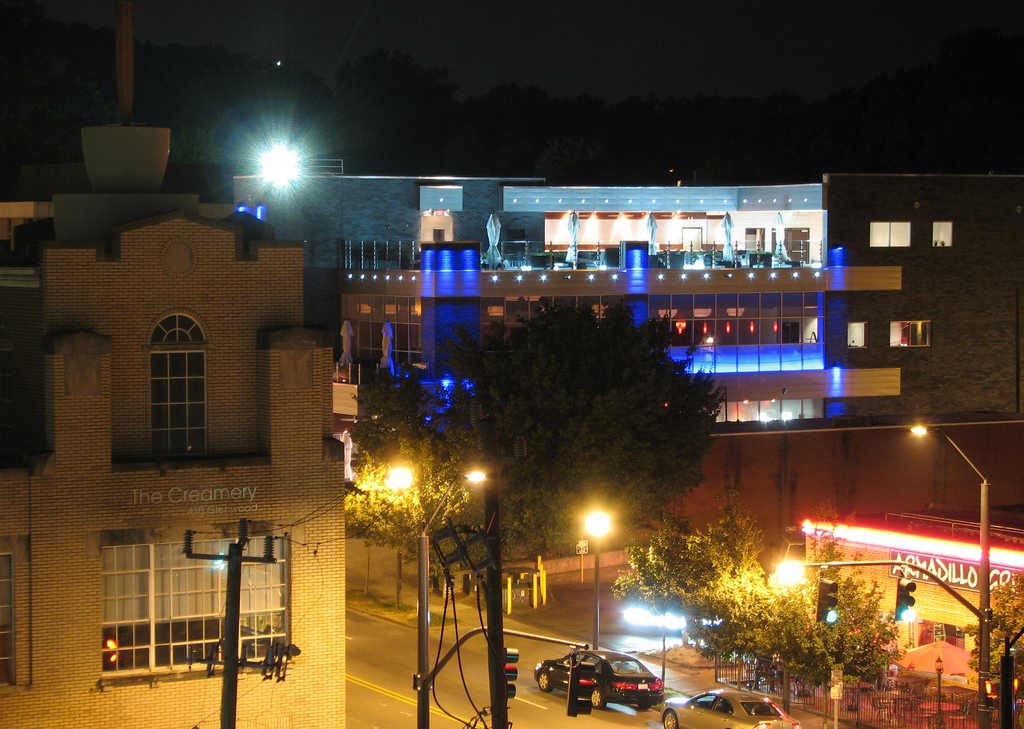In a public hearing Wednesday night, City Council voted 6-1 in approval of the ordinance implementing a one-year pilot program that will allow for greater communication between residents and businesses regarding noise levels of live acoustic or recorded music.

Leo Suarez / dtraleigh.com
Downtown Raleigh’s Glenwood South district
In a presentation, councilors were given a summary of the changes that will take place when the Glenwood South Hospitality District is adopted. The changes include establishing a Hospitality District Entertainment Permit (HDEP) in place of the existing permits, a requirement for businesses to designate a “premises manager” to interact with those that have complaints about the noise levels, and the implementation of a Complaint Registration System available to the general public.
Residents speaking during the public hearing had concerns that the Hospitality District fell beyond Glenwood South—specifically in regards to St. Mary’s Street—and that there was no mention within the ordinance if the same regulations applied if windows and doors to the businesses playing music were open.
Mayor McFarlane asked city police for clarification about what constituted a “response” by the businesses in regard to a noise complaint.
City police noted the response would vary depending on businesses, but that the new ordinance does not take away options for residents. They still, for instance, would be able to call the police if necessary to resolve a noise complaint. The new ordinance, city police said, would try to encourage communication between both parties before involving the police.
Councilor Baldwin was in favor of redrawing the boundary line of the Hospitality District between St. Mary’s Street and Boylan Avenue in response to the concerns of residents. Councilor Stephenson agreed, stating that “because it’s a pilot program there’s no need for expansion [beyond Glenwood South].”

c/o City of Raleigh
This map indicates the original boundaries for the district. The section at the top left stretching to St. Mary’s will not be part of the pilot program.
Councilor Odom was opposed to the redrawing of boundary lines, saying that it would take away options from the residents if noise levels became too loud from nearby businesses, and ultimately voted ‘no’ to the adoption of the ordinance.
The cost for businesses to secure a HDEP is initially $500 with a $100 annual renewal fee. There is also an escalating series of civil penalties of businesses do not follow the regulations within the ordinance.
Permit holders will be allowed to play live acoustic music or recorded music subject to decibel limitations from 11 a.m. to 11 p.m. Sunday-Thursday and 11 a.m. to 2 a.m. Friday-Saturday, with further restrictions during other hours. On all days from 2 a.m. to 7 a.m., there are to be “no audible sounds from exterior of any building,” according to the summary packet provided with the public hearing item.
The ordinance also instituted a mediation process between residents and businesses, which would be initiated by the police chief or a designee of the police chief. Residents may also use public contact information to speak with managers directly if the amplified entertainment is causing a disturbance.
In addition to redrawing the boundary between St. Mary’s Street and Boylan Avenue, boundary lines were also redrawn to include Comedy Worx at 431 W Peace Street, which is surrounded predominantly by warehouses.
The Glenwood South Hospitality District will take effect December 1.
